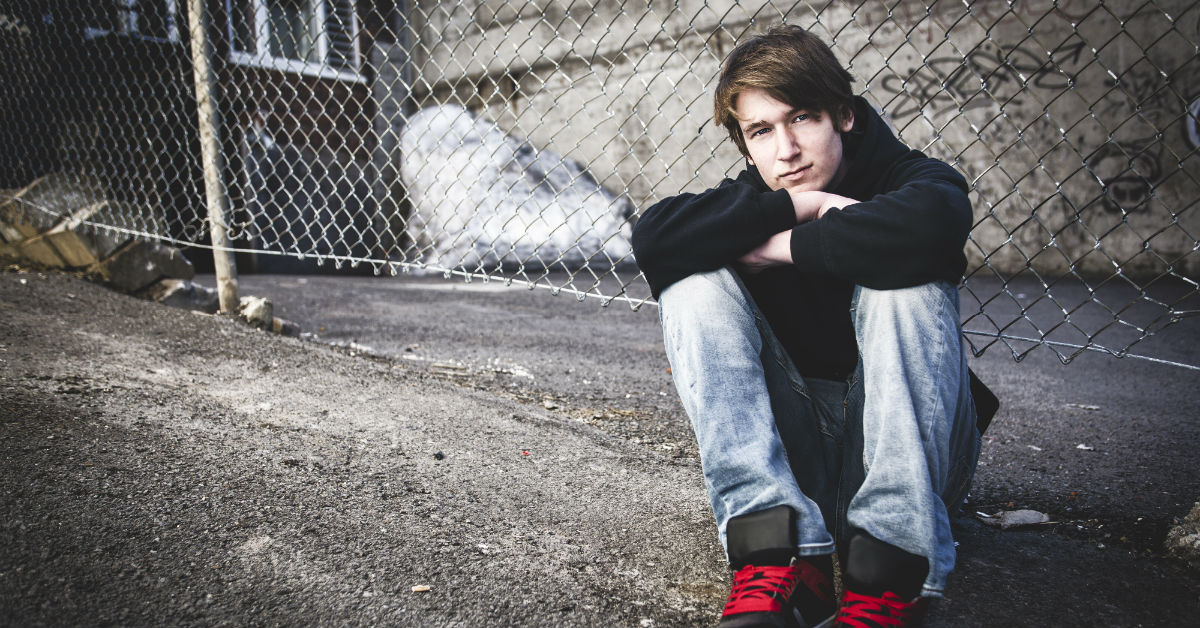“I hate you!” they scream. In their actions, their words, those awful looks they give — they all radiate your teen’s anger. That resentment becomes apart of every interaction, reminding you, my teen hates me.
But it doesn’t have to be that way.
Even when it feels like there’s nothing left to do, there are still solutions to working with your difficult teen.
The critical thing to remember when working with your troubled teen is that the two of you can overcome any problem as long as you can both reach a place of calm and openmindedness. So, when angry outbursts leed to unkind words or the choices they’ve made have resulted in a pretty terrible outcome, take heart and remember there is always a solution.
Scenario: “I hate you!”
Every teen says they hate their parents. So stop worrying, your teen doesn’t hate you! We understand how difficult those words are to hear. But here’s what they’re really saying: I’m struggling right now, and I don’t know what else to do. Screaming hateful words is their only solution to heightened feelings of frustration they’re experiencing.
So when your kid says they hate you focus on what caused the anger instead of where they’re directing it (you). To demonstrate that you understand why your teen is frustrated, repeat their frustrations back to them. This ensures to them that you’ve understood their feelings correctly. From there, you’ll have a better chance of talking through the problem with a teen who is more willing to participate in the conversation.
Scenario: Your Teen Is Failing Multiple Classes
As the parent, you want to ensure your child does well in school so they can go to college, become gainfully employed later, and have more opportunities in life as adults. But when a teen is decidedly uninterested in learning, there is little you can do to force a change in their behavior. If this is ever the case in your home, it’s important to work with the school administrators because they can have a larger effect on your teen’s academic environment.
At home, mom and dad set boundaries and expectations for their children. You can do this because you’re present in the home and aware of the day-to-day activities. But you don’t have the necessary influence your teen needs in their school environment since you’re not there with them. Stress and fighting at home because of school performance will only make the problem worse. Work with school counselors. They can make a plan to help your teen find success at school with the tools and interventions they have access to. Your job as the parent is to then make sure the counselor is following through with the plan you have all agreed on. As adjustments to the plan need to be made, work together to help your teen.
Scenario: You’re teen comes home late at night and is noticeably intoxicated.
This scenario is scary for so many reasons. What were they doing that night with their friends? What else is in their system? Were they driving drunk? Step one to navigating this situation is to establish a time for a conversation at a later date (the next morning). An intoxicated teen is in no position to listen to what you have to say. An angry parent is in no position to think rationally and likely, restrain their temper.
When the two of you are able to sit down and discuss the situation, ask open-ended questions that help your teen think through the recent scenario. More importantly, ask questions that display to your teen your desire to understand them.
- So what happened the other night?
- Did anyone get hurt?
- Did you feel pressured to drink with your friends?
- Are you looking for an escape?
- How do you feel about what happened?
Reiterate their explanations so you demonstrate your understanding of the situation and their feelings about it. When facing a situation where you feel your teen has made a poor choice, avoid shaming their behavior. Instead, calmly express your concerns and your wishes. But leave room for your teen to have a say in the matter. If they feel they have no control over their lives, their behavior will likely be rebellious in an effort to find a sense of choice and agency. Most teens will try alcohol at some point. While it might be the last thing you want, trying alcohol doesn’t mean there’s a problem.
By showing your teen you can have this conversation with them in a calm manner, it grows their trust in you. After time and many trust-growing conversations, you can develop a relationship with your teen where they involve you in their lives and their decision making. But shaming, yelling, restricting, and other negative reactions to these scenarios yield secrecy. If your teen starts showing signs of alcohol or drug abuse, there are therapeutic interventions that can help.











0 Comments